For technique-obsessed guitar players, control is king. But that fixation typically goes beyond the moment and place where fingers and fretboard meet: It’s also about precise equalization and eliminating noise—or just about anything else that gets in the way of perfect note articulation.
If the 14 knobs and three footswitches didn’t clue you in, ISP’s Theta preamp is built for control freaks. It’s a preamp, a 2-channel distortion device, and it includes ISP’s popular Decimator noise suppressor—or, as they like to refer to it, a dynamically controlled downward expander. But that doesn’t mean it’s only effective for session slicksters and metal surgeons. With a little tinkering the ferociously powerful Theta can work wonders for country pickers, fusion jazzers, experimental and classic rockers, and any touring musician who has to grapple with an ever-changing backline.
Beyond Decimation
ISP is probably most famous among guitar players for the Decimator noise-reduction pedal, which metal shredders love for its door-slamming noise gating and the way it enhances chunky, high-gain rhythms and machine-gun note flurries. But the company also builds high-gain amps and concert hall and line-array speaker systems. So they have a very broad perspective on how to make an instrument sound loud and clear, and the convergence of pedal and pro audio design sensibilities are easy to see in the Theta.
Though the many-knobbed Theta reflects a control freak’s mindset, not one of the 14 controls is frivolous or wasted. The six leftmost knobs in the upper row are dedicated to the preamp section, and once you’ve sorted out which is which, it’s as intuitive to operate as an overdrive pedal. All three of the EQ controls—bass, mid, and treble—are cut/boost controls with 15 dB to play with on either side of zero.
The one function that will be relatively tricky for the uninitiated is the sweepable mid section. But if you’ve never tinkered with parametric or semi-parametric EQ (the principle at work here), it takes just a little practice to grasp the essentials: You use the sweep knob to pinpoint the midrange frequency you want emphasized (from 300 Hz to 6 kHz), then use the mid knob to cut or boost that frequency. The additional precision means you can very specifically tailor the Theta to juice the sweet spots on a given guitar or amp, or boost a frequency that’s otherwise absent. This EQ is also perfect for dialing in cutting lead or rhythm tone in the studio before you ever have to tinker with it at the mixing desk.
The 2-channel distortion section uses an identical EQ section, complete with the sweepable mid function. These dual channels, which are selected using the leftmost footswitch, share the EQ section, so you can’t individually EQ the two gain stages. But the respective levels can be set for wildly varied amounts of gain for thrusting a lead to the forefront or exploring soft-to-loud (or loud-to-louder) dynamics in a song.
A simplified version of the Decimator noise control section is controlled via the knob in the upper right hand of the control set, which sets the noise threshold
Box of Brutality
Let’s cut to the chase. The Theta is loud … brutally loud … 160 dB of extra-gain loud when you use the preamp and distortion sections together. That’s the reason a lot of players are going to buy the Theta. And it’s hard to imagine high-gain freaks being disappointed by the output or Theta’s impressive ability to shape and tame the savagery.
Ratings
Pros:
Huge gain range. Effective noise suppressor. Very impressive tone-shaping power—especially in the sweepable mid control.
Cons:
Even the mellower distortion tones have a trace of aggressive edge.
Tones:
Ease of Use:
Build/Design:
Value:
Street:
$332.26
ISP Theta Preamp
isptechnologies.com
The latter set of capabilities is especially impressive when you put the Theta out in front of a clean and loud amp like a Twin Reverb. That’s not the most obvious pairing for a pedal geared to the high-gain set, and finding the best distortion and EQ setting takes a little work (aggressive distortion setting with slight boosts in the high, mid, and low end can make the Twin loud and shrill). But feed the distortion circuit with a low-heavy setting from the preamp, drop the high end, and move the sweep control to it’s lower reaches, and the big Fender amp will bellow with a rich distortion that billows with bass depth and overtones, and exhibits the fast pick responsiveness shredders love. In settings like this, the Theta is powerfully transformative.
No matter what amp you use, the Theta’s distortion is aggressive and hot—the nasty, brutalizing stuff of modern metal from the ’90s onward. But introducing the preamp to the distort channel lets you tune in funky, fuzzy sounds from Muff-meets-Rat corpulence, to buzzing ’60s tones, to the strangled-and-mangled sound of an old, compressed tweed driven to its limits.
The preamp gain alone is crazily effective for coaxing organic, harmonic amp distortion. And though there is an essential heat in the Theta’s preamp (even the lowest gain settings give your output a discernable edge, and this makes the sweepable mid control invaluable), the clean output can give clean single-coil pickups a considerable push without adding a lot of dirt.
The Verdict
On the surface the Theta is most appealing to heavy players, yet it’s a pedal that guitarists well outside the heavy realm will find impressively practical. Clever use of the preamp and sweepable mids can transform the savage distortion output into civilized and unique fuzz and low-gain distortion tones. And the preamp overdrive alone is wide ranging, vocal, and responsive enough for classic rockers or modern jazz players that like a little heat on their signal.
Few pedals do such an effective job standing in for the front end of a high-gain amp. That may be what Theta does best, but that it excels at more routine tasks with such a wide range of amps is a testament to how thoroughly and thoughtfully this unit is engineered. And if you’re looking to get more oomph, definition, and control out of the amp you have, the ISP Theta can provide a lot of very interesting alternatives and solutions.


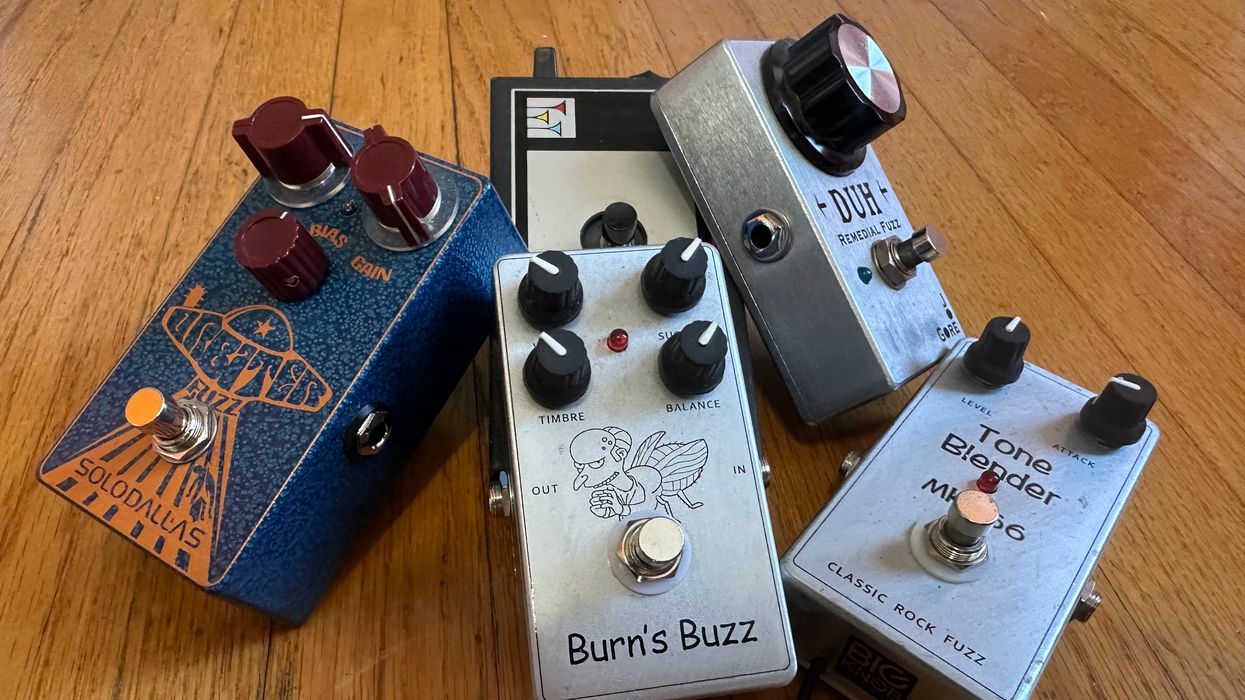



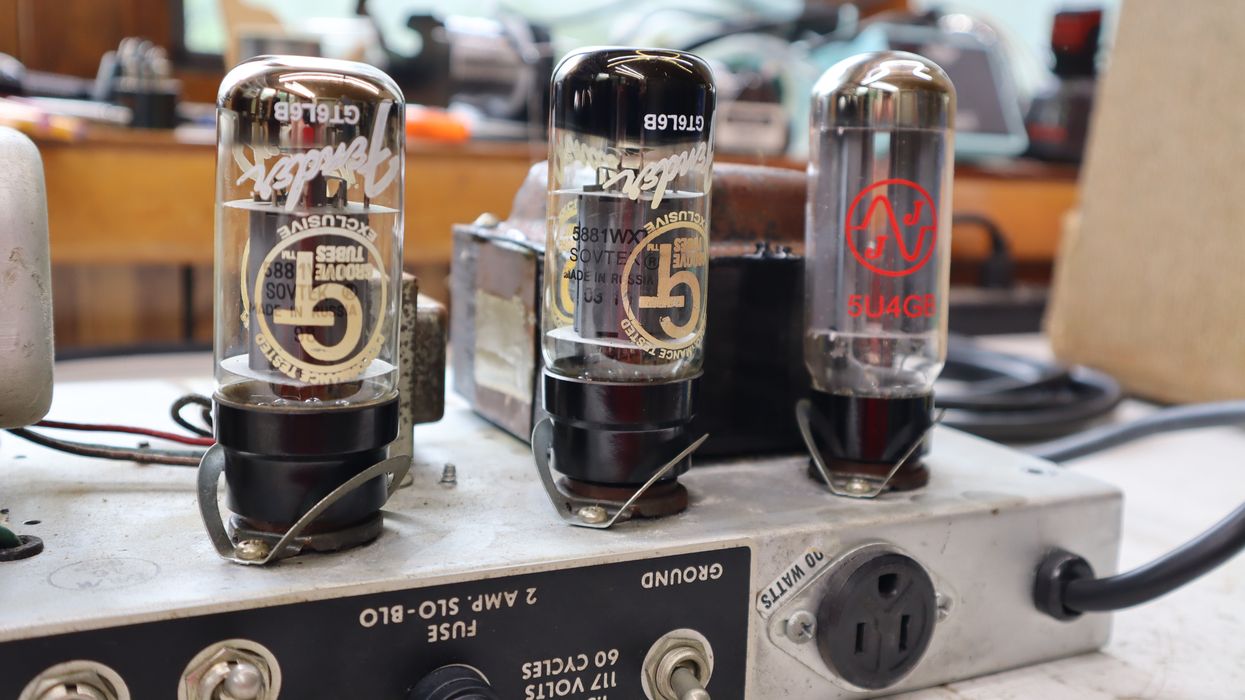

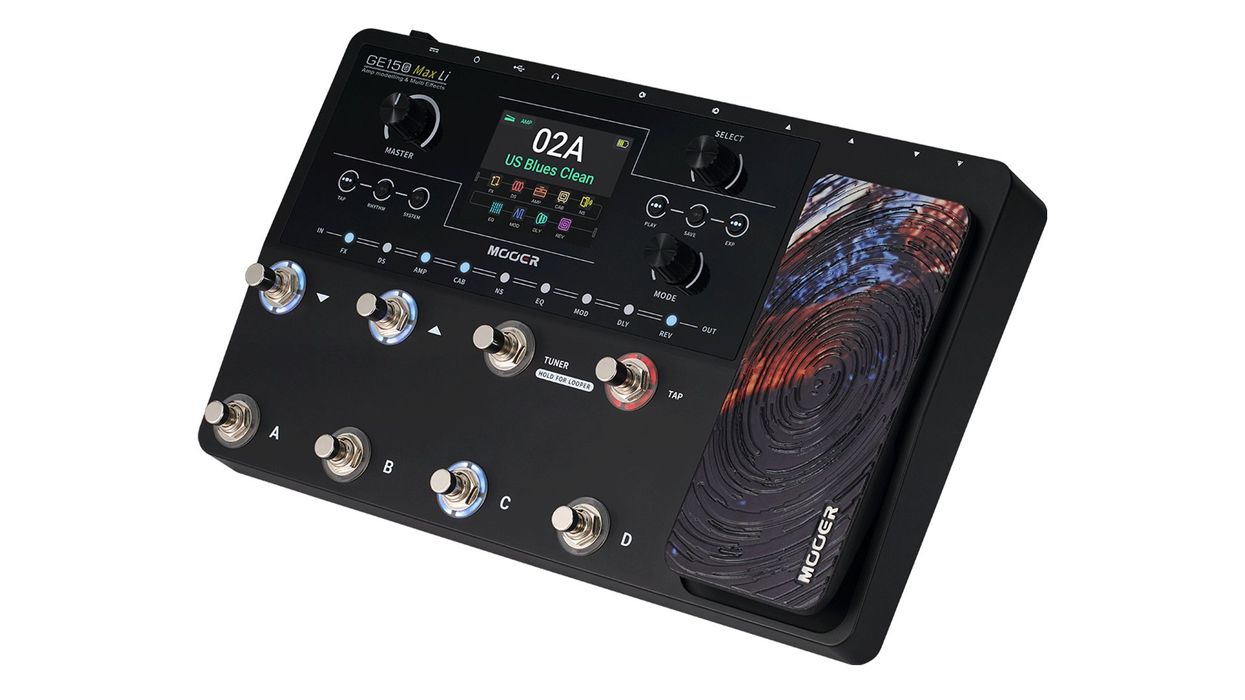


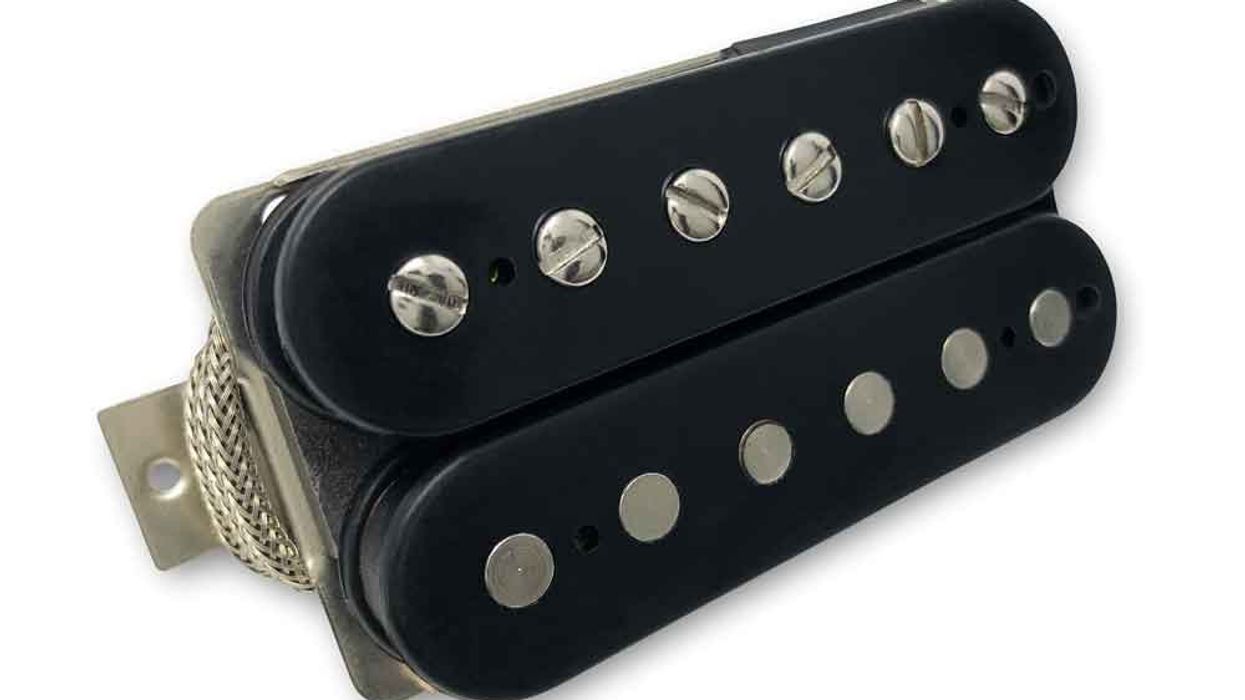

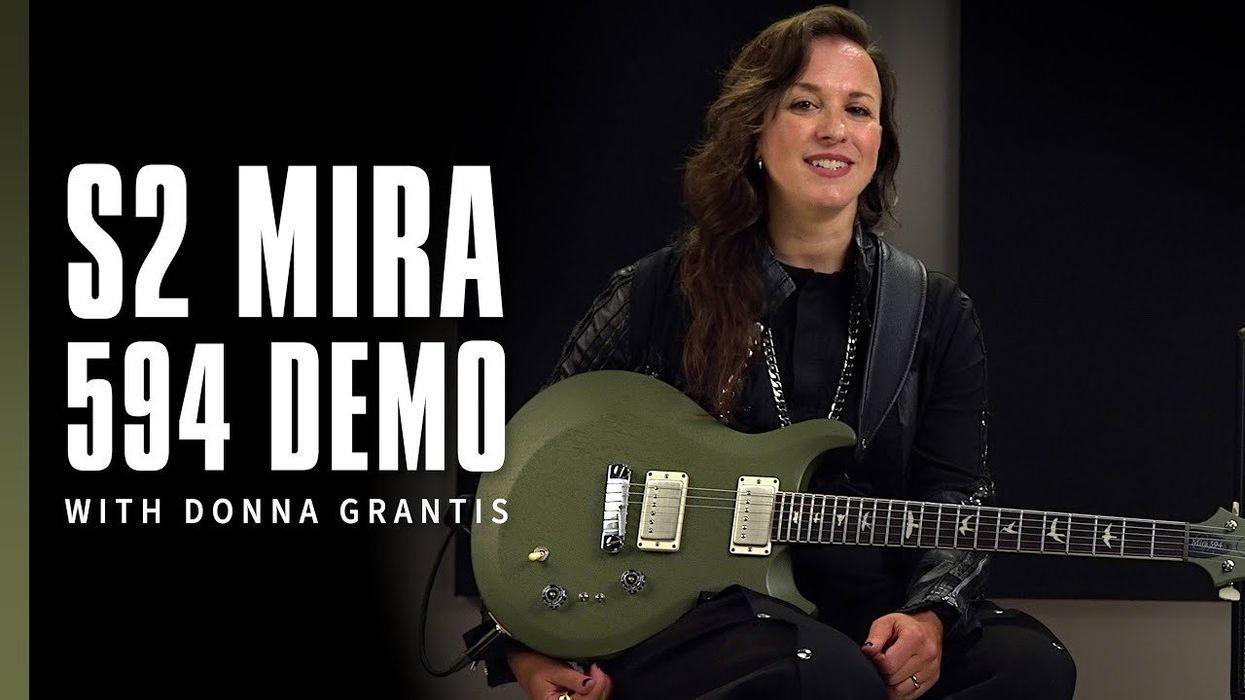
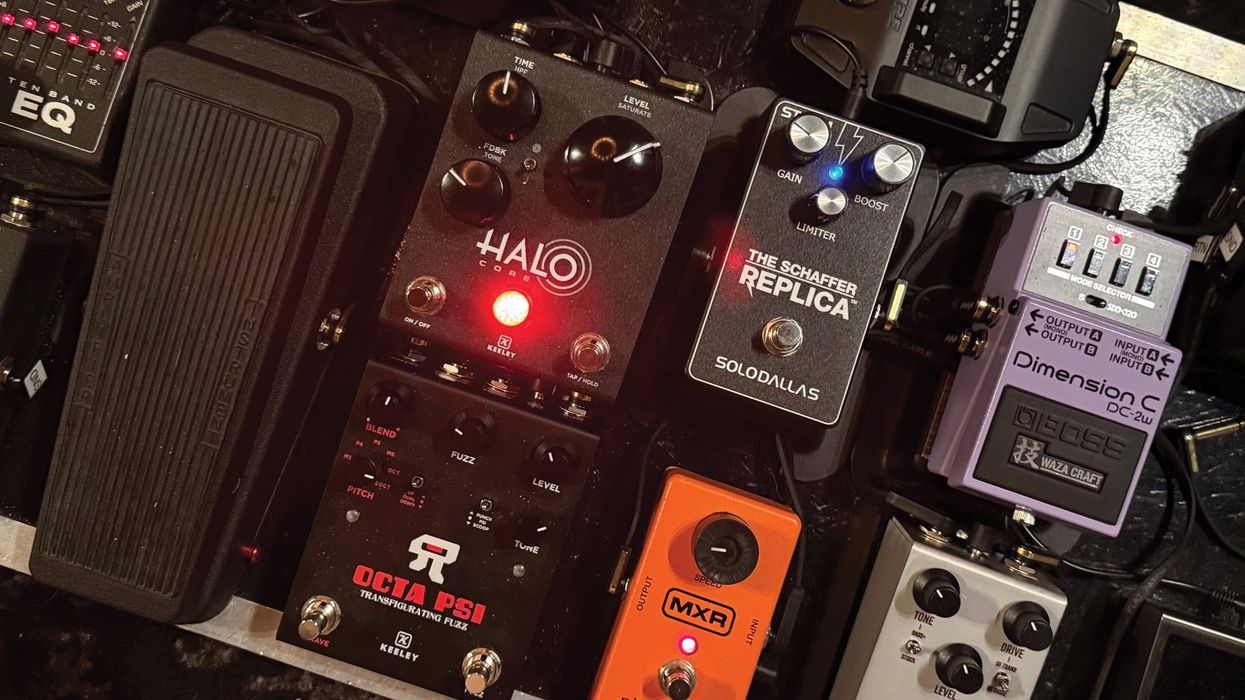


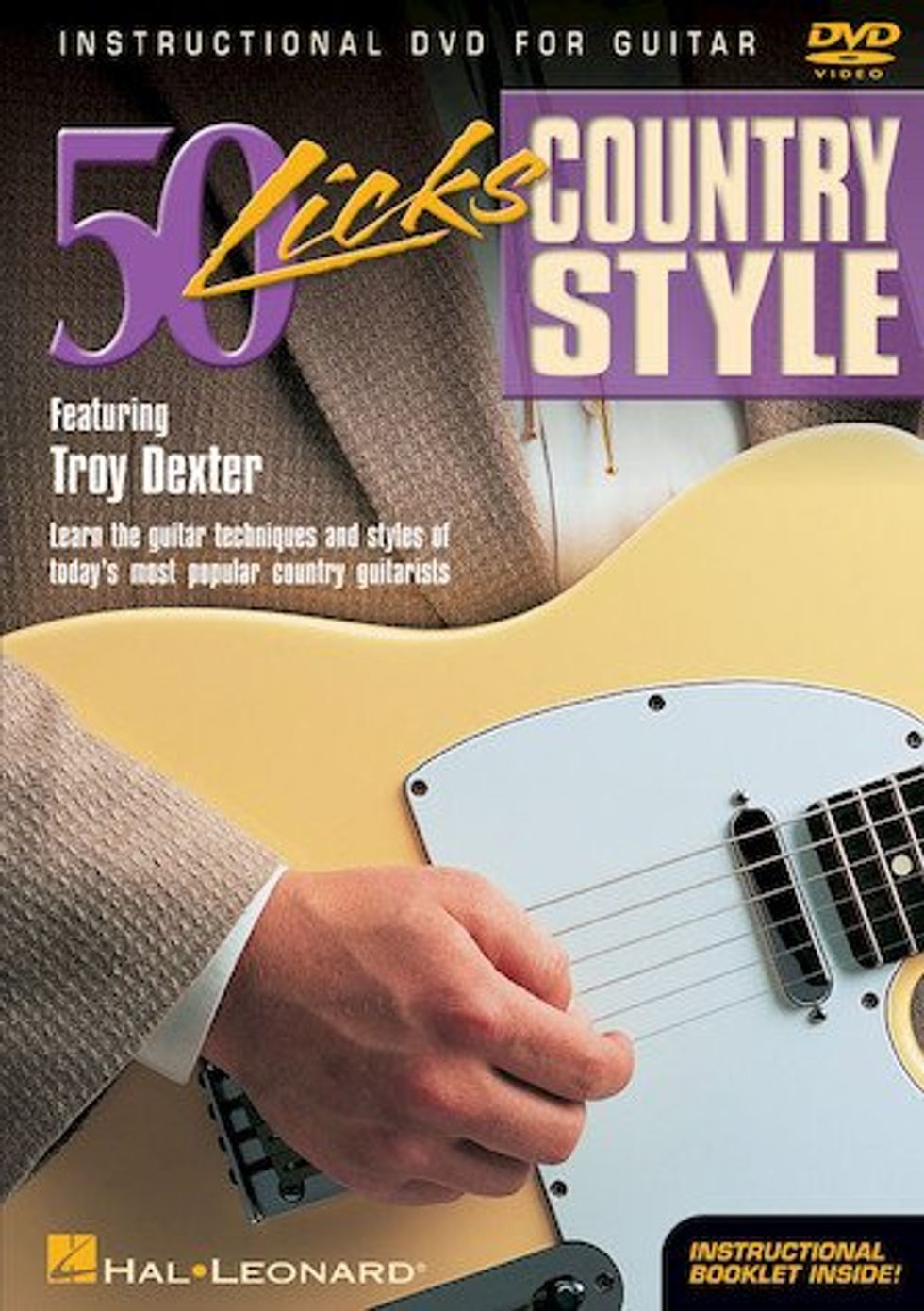

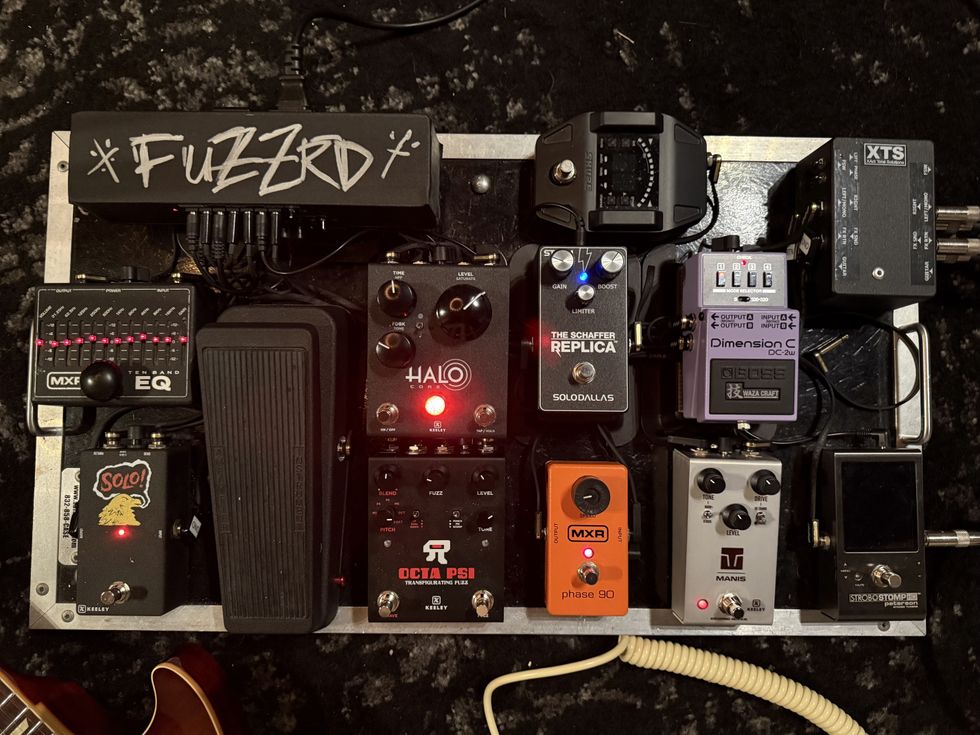

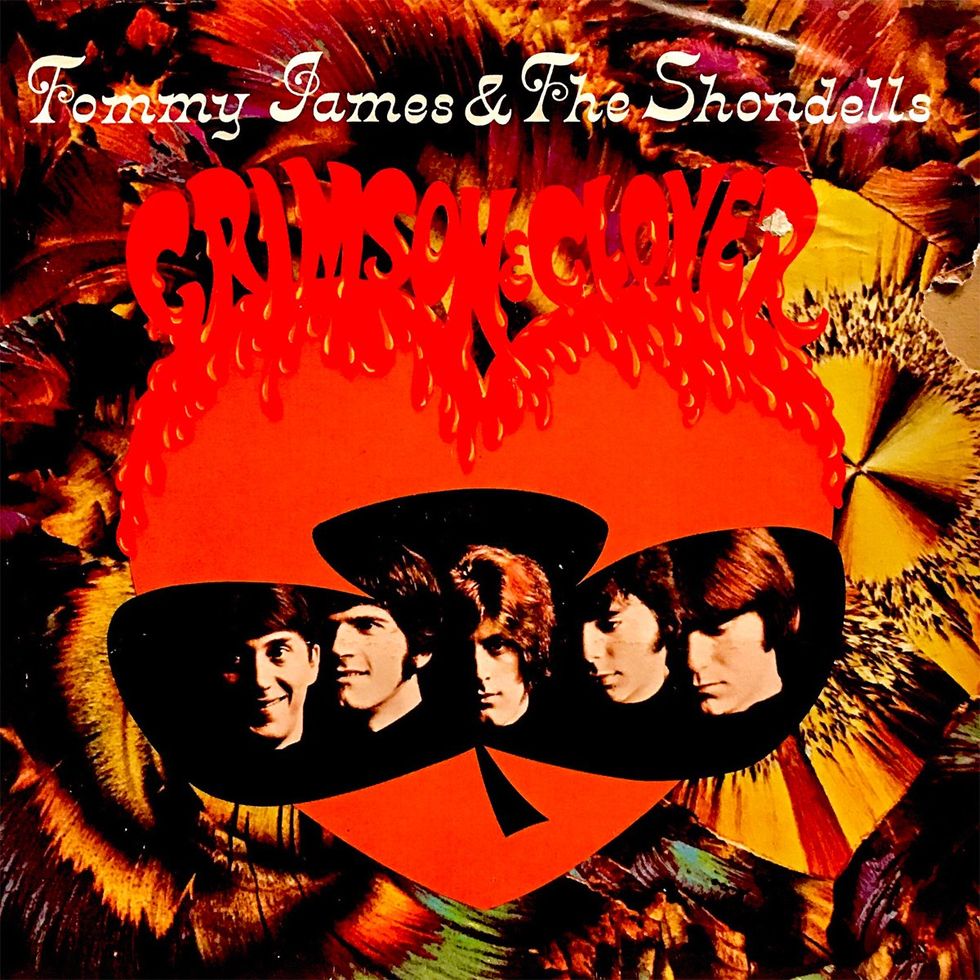

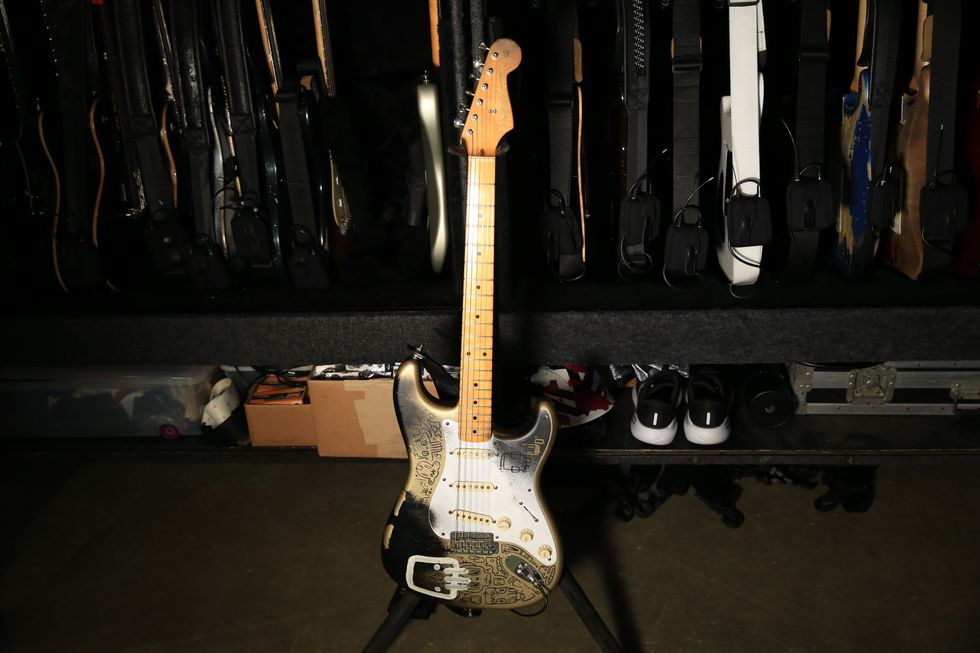
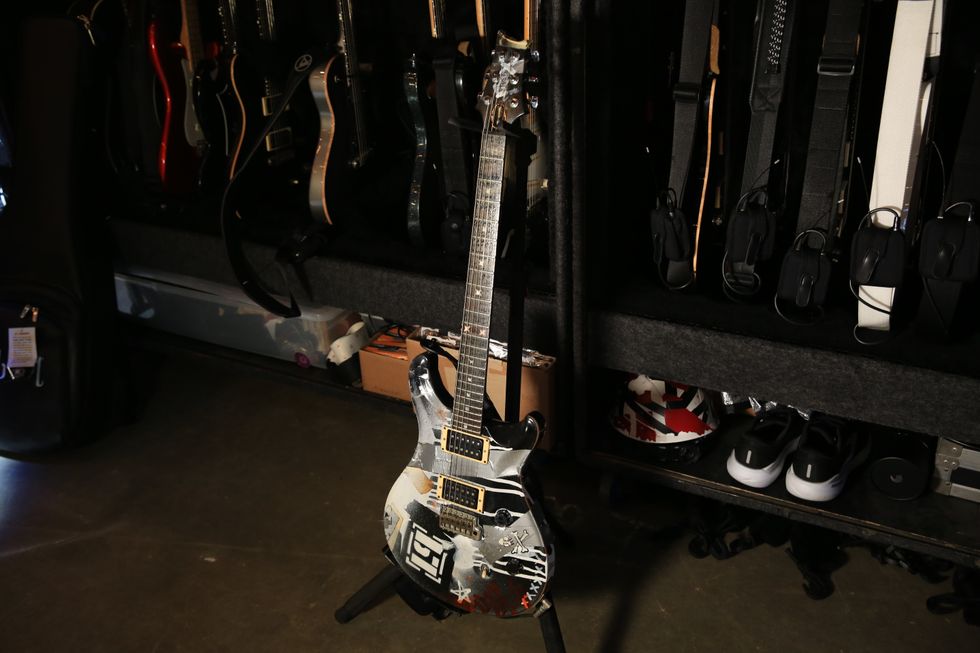
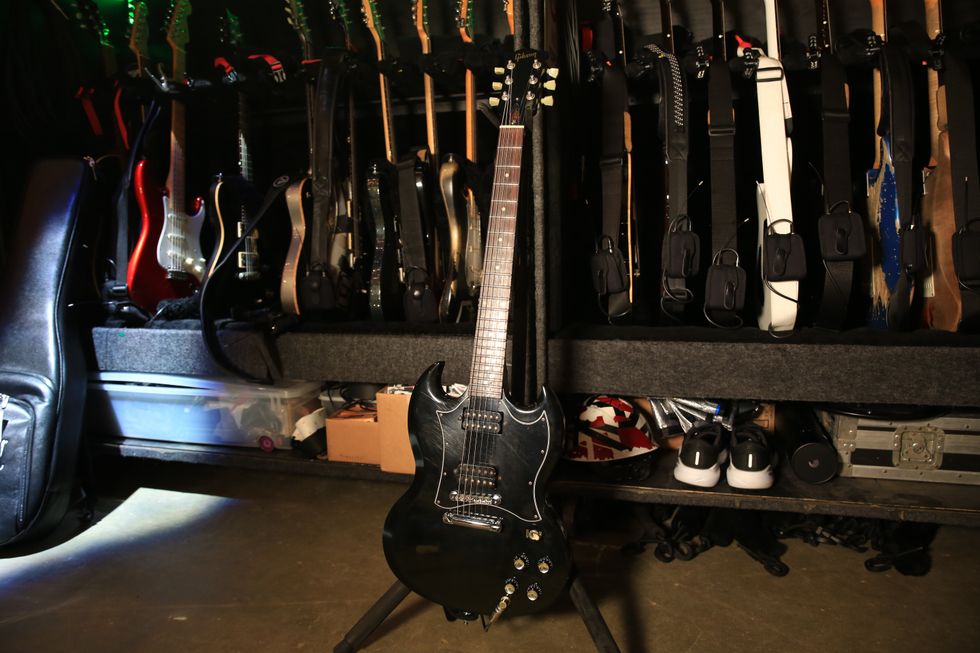
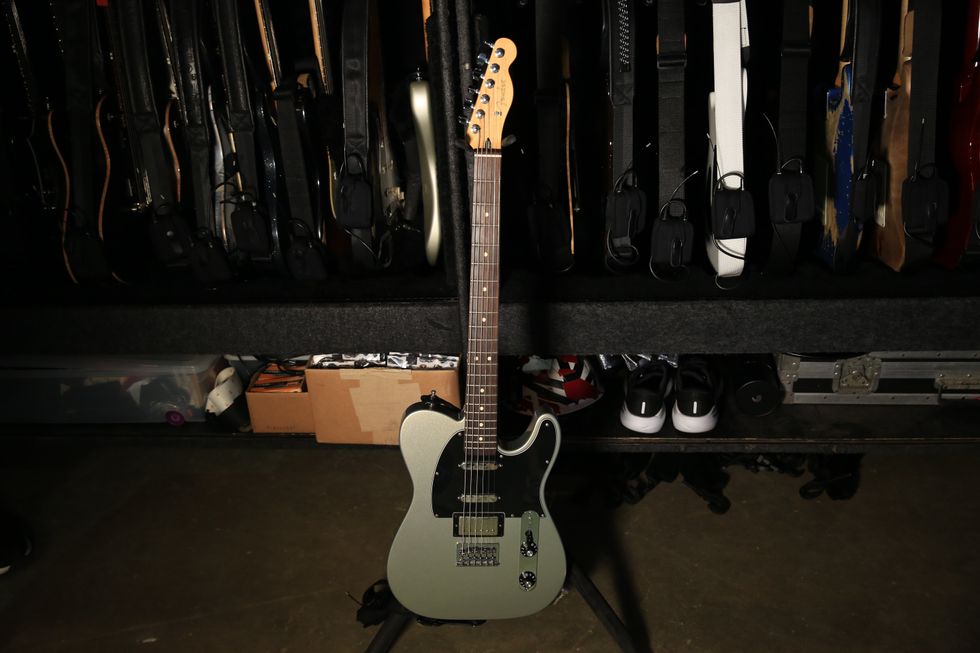
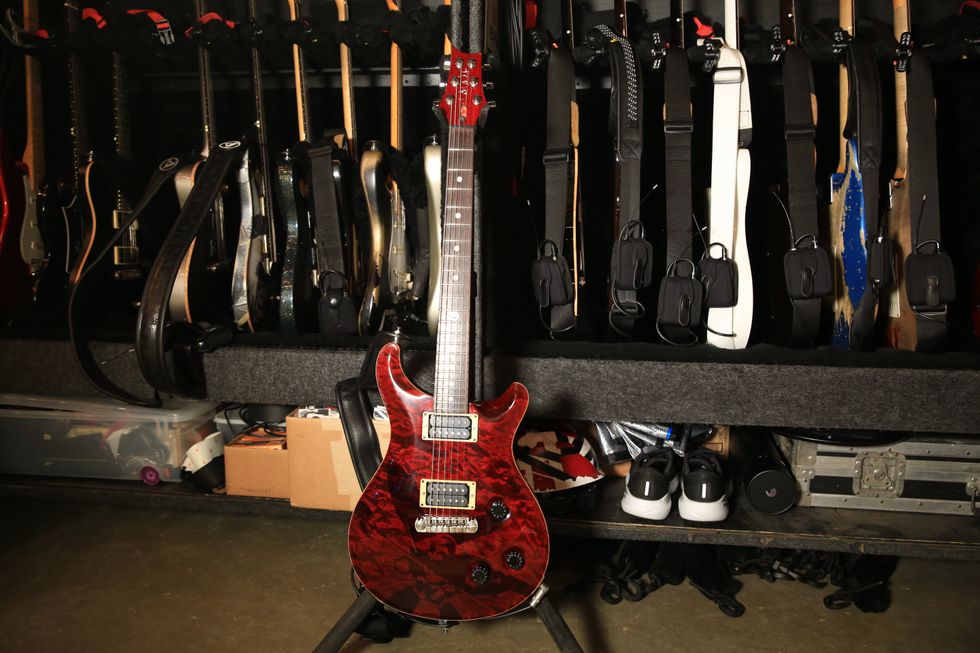

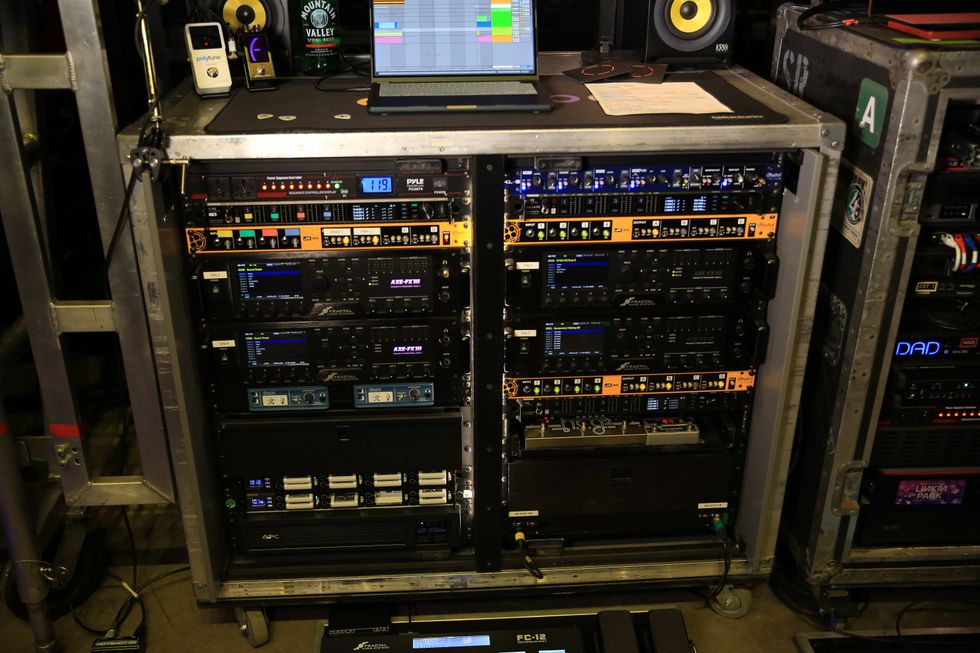
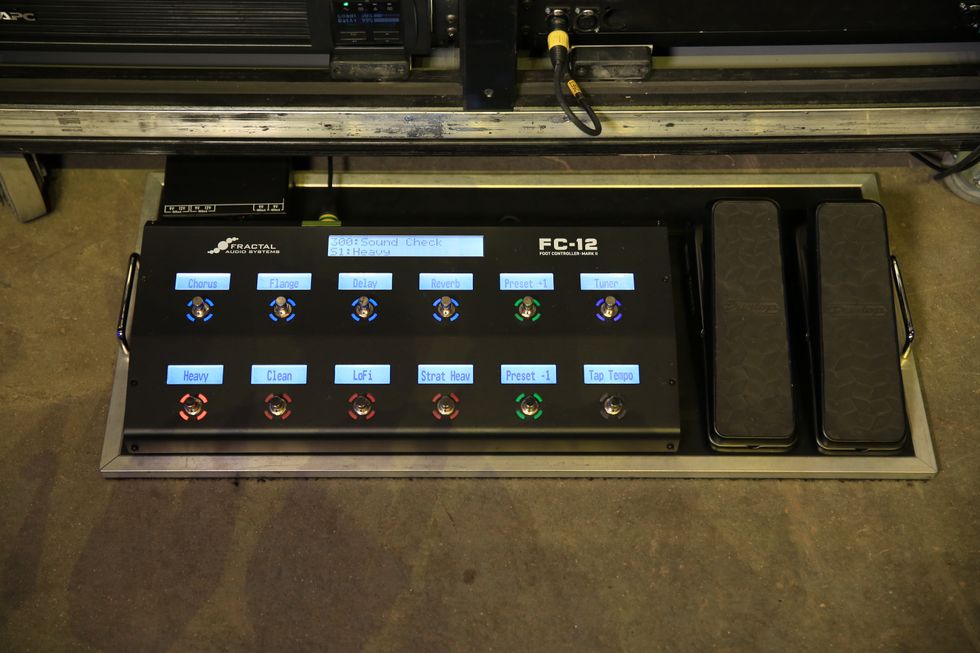
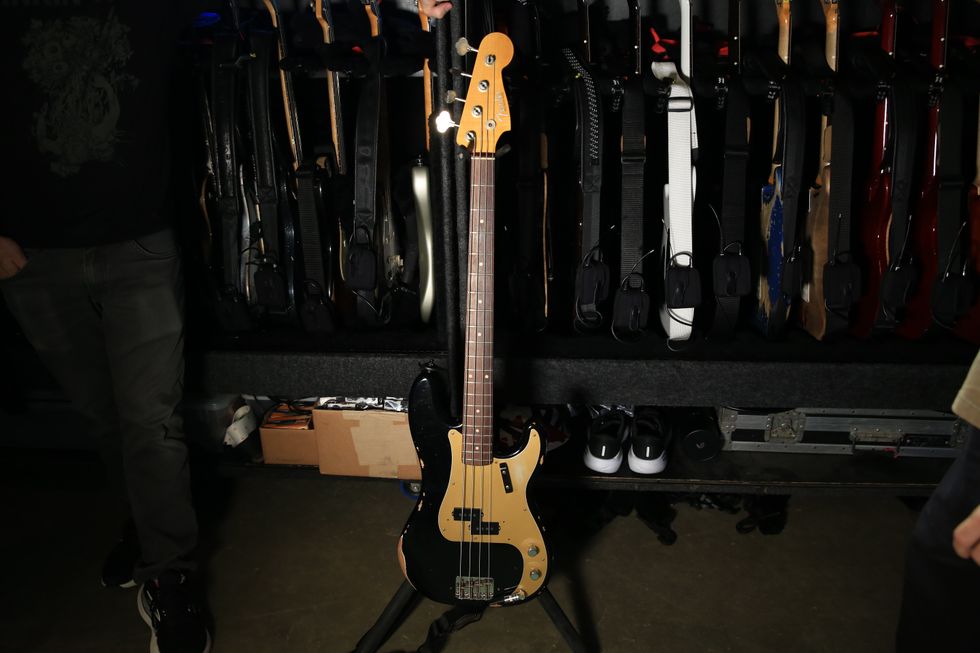
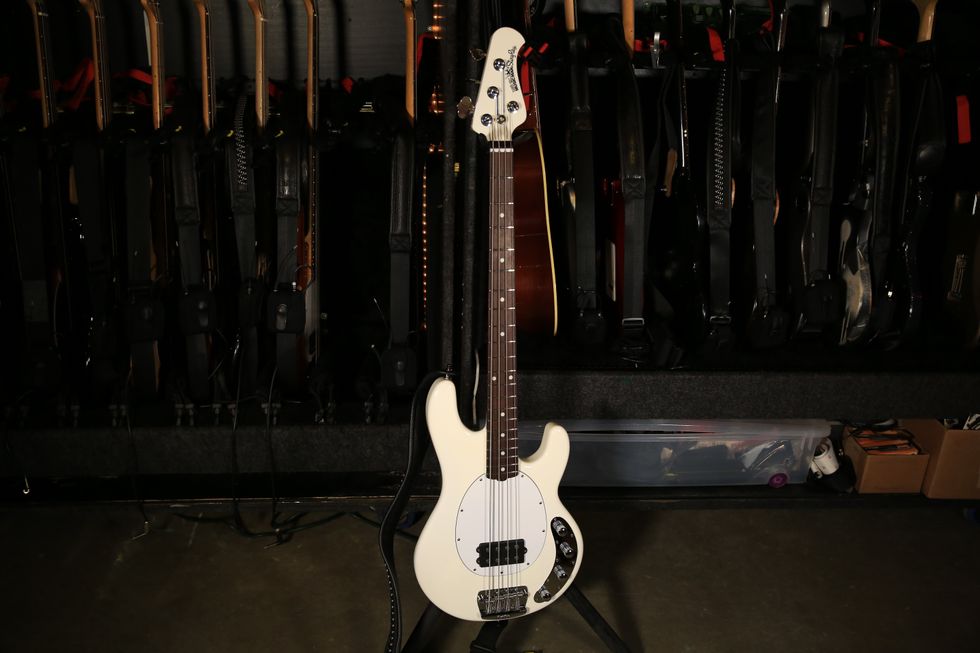
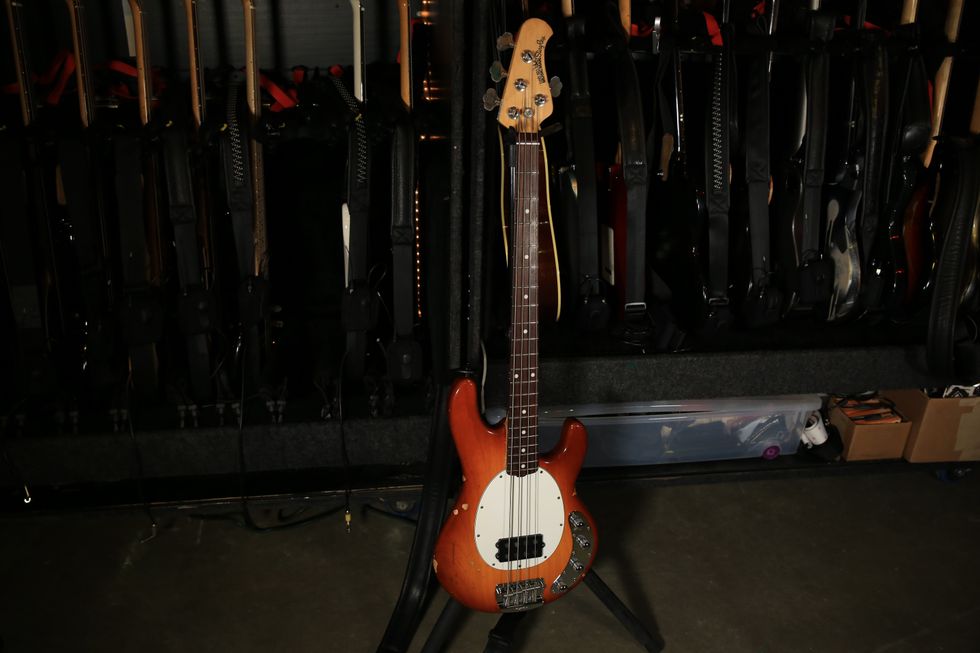
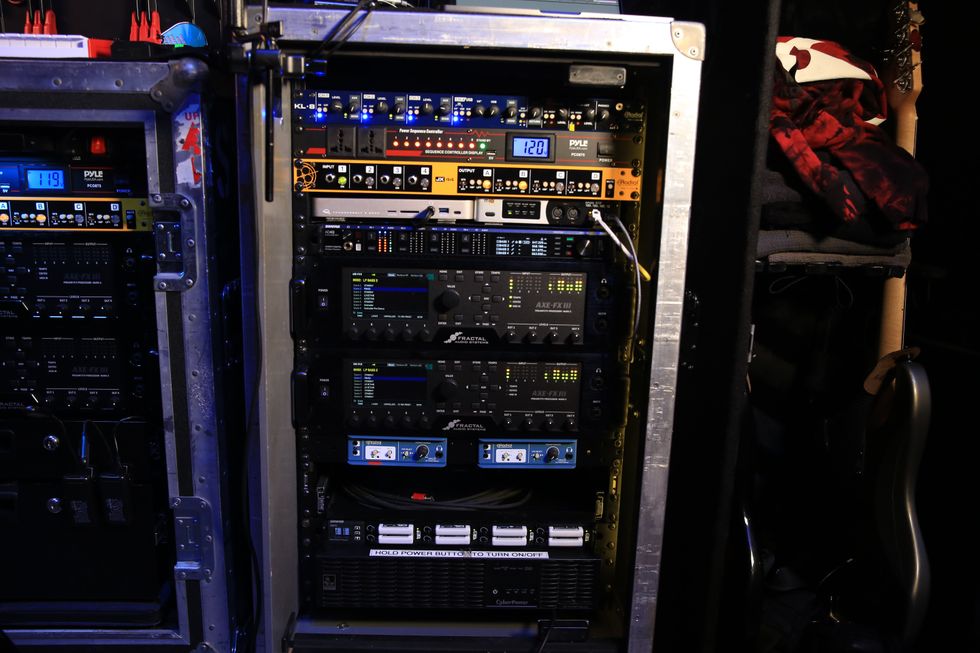

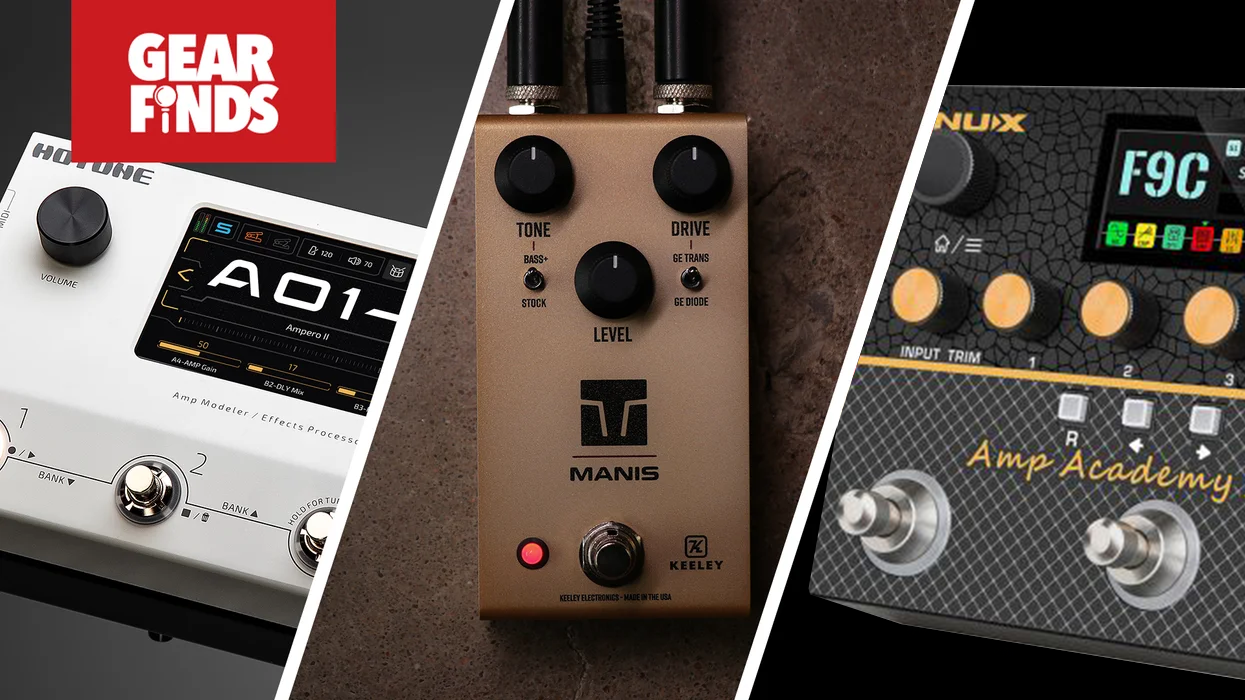
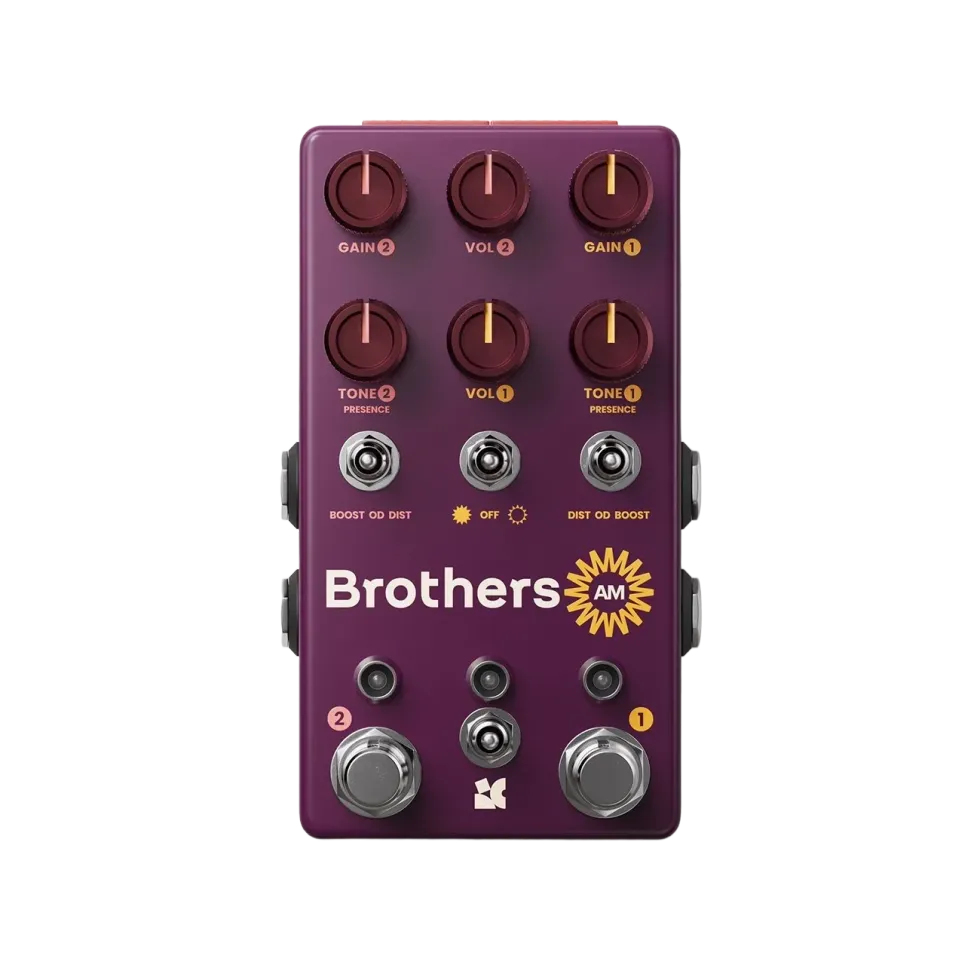
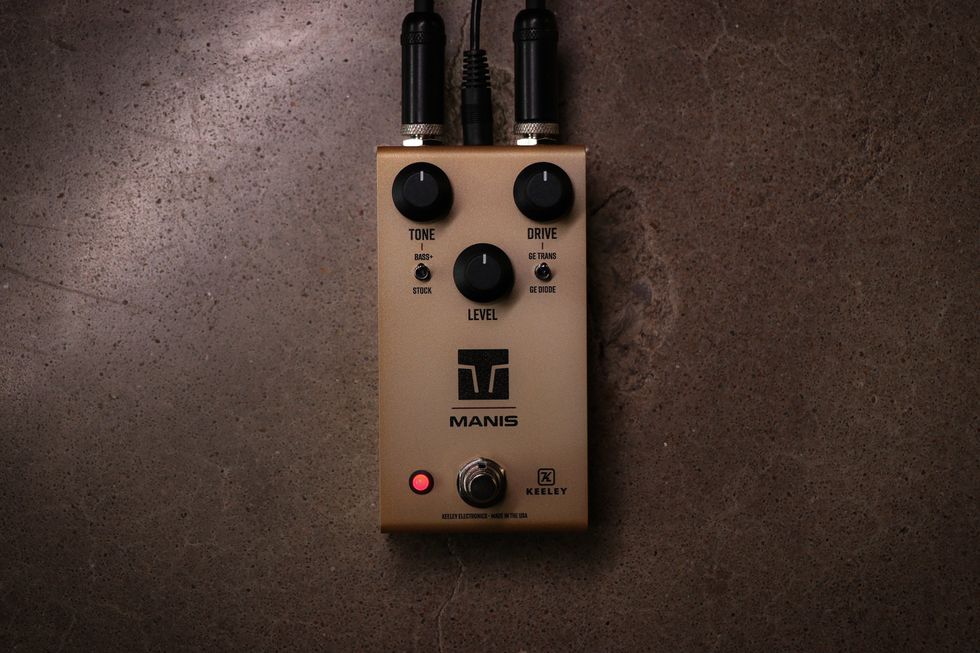
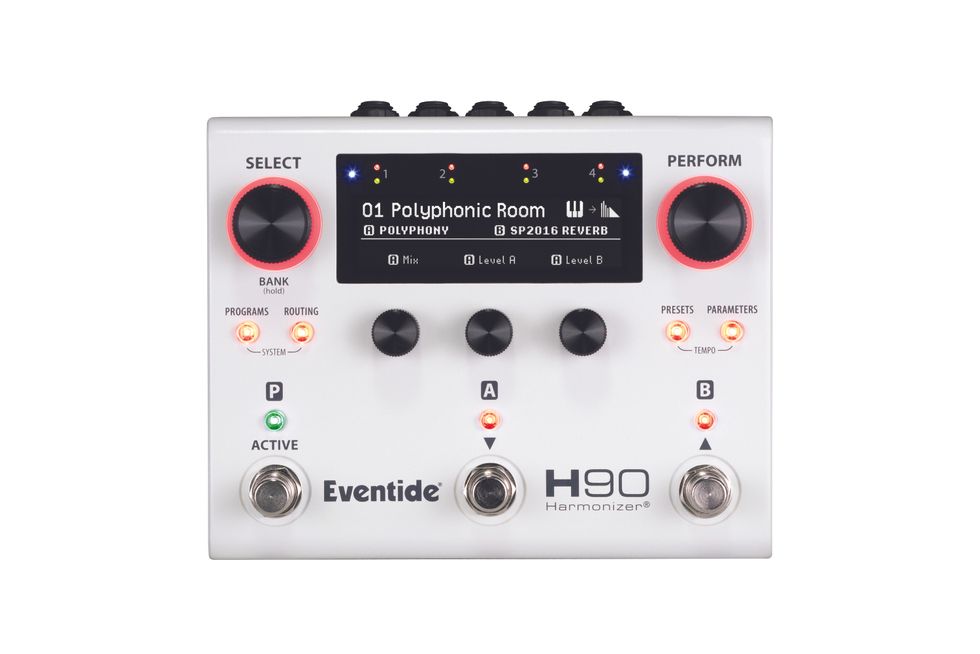
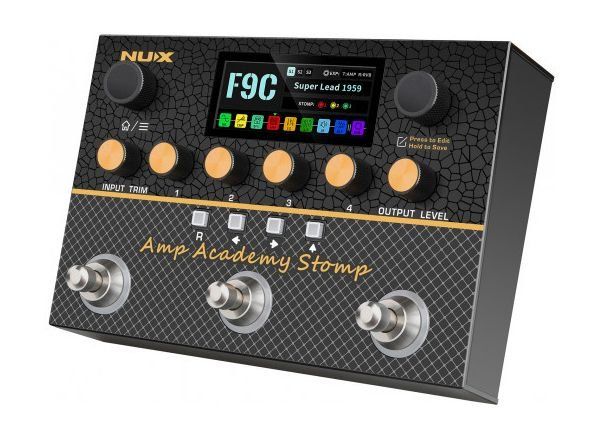
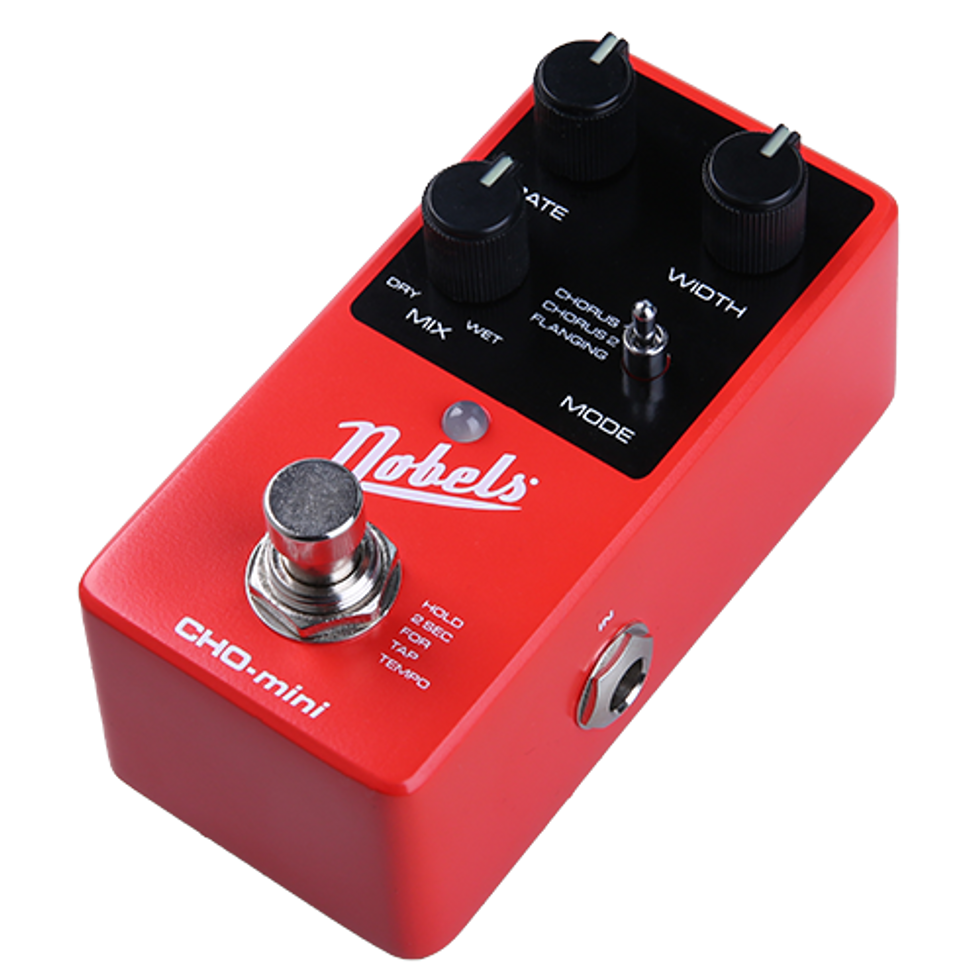
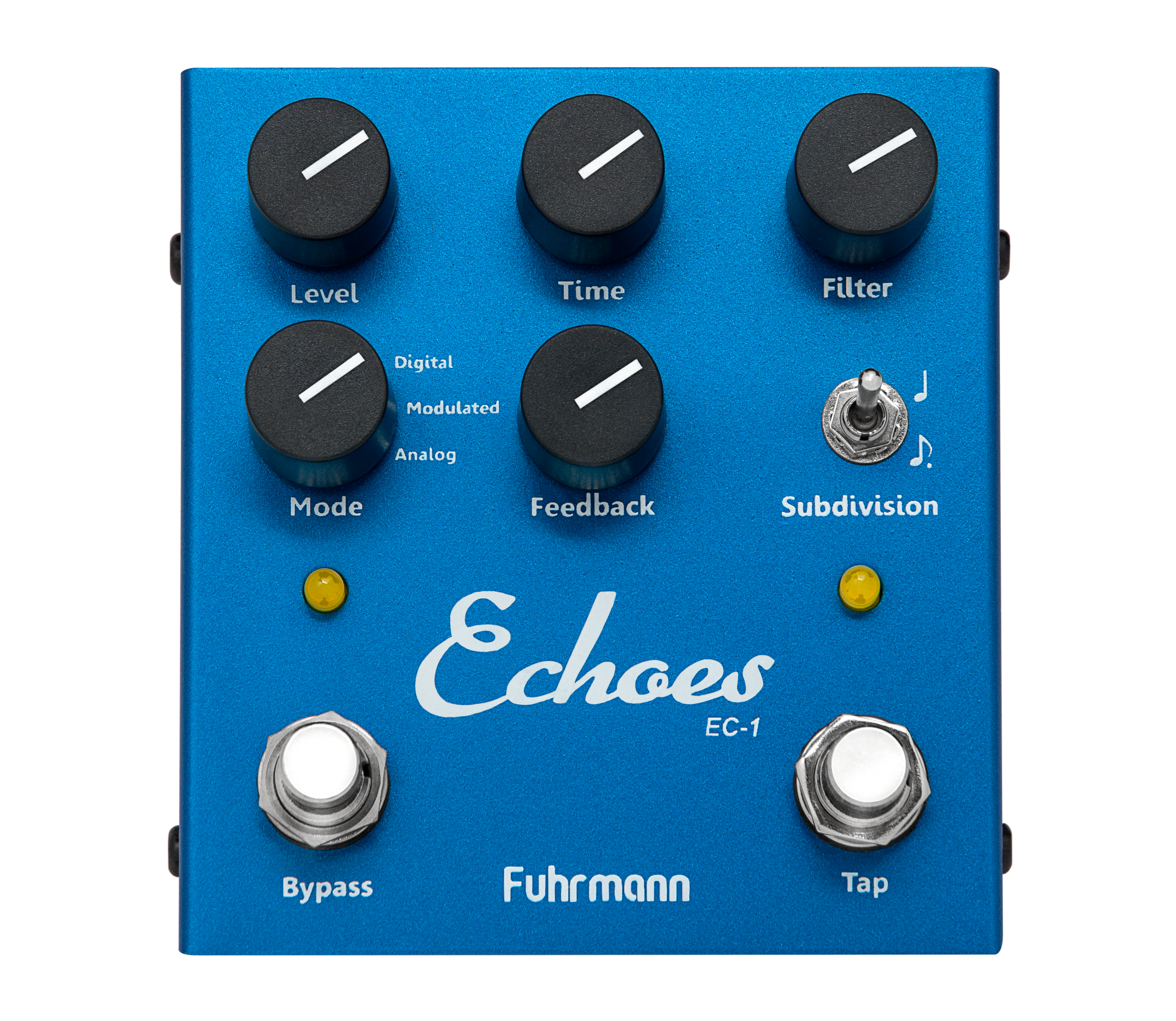
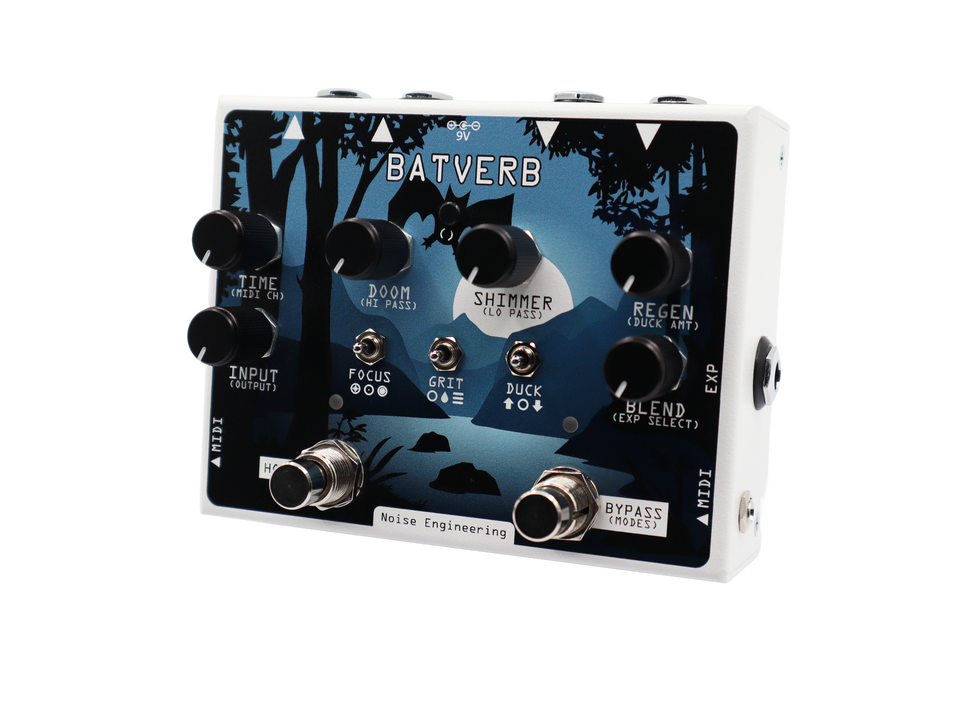
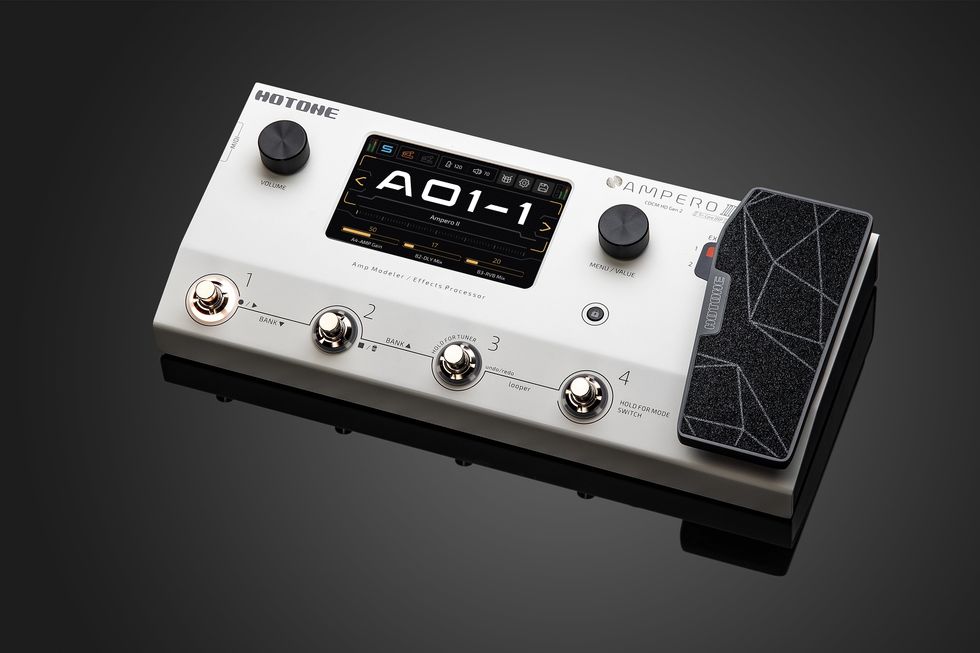
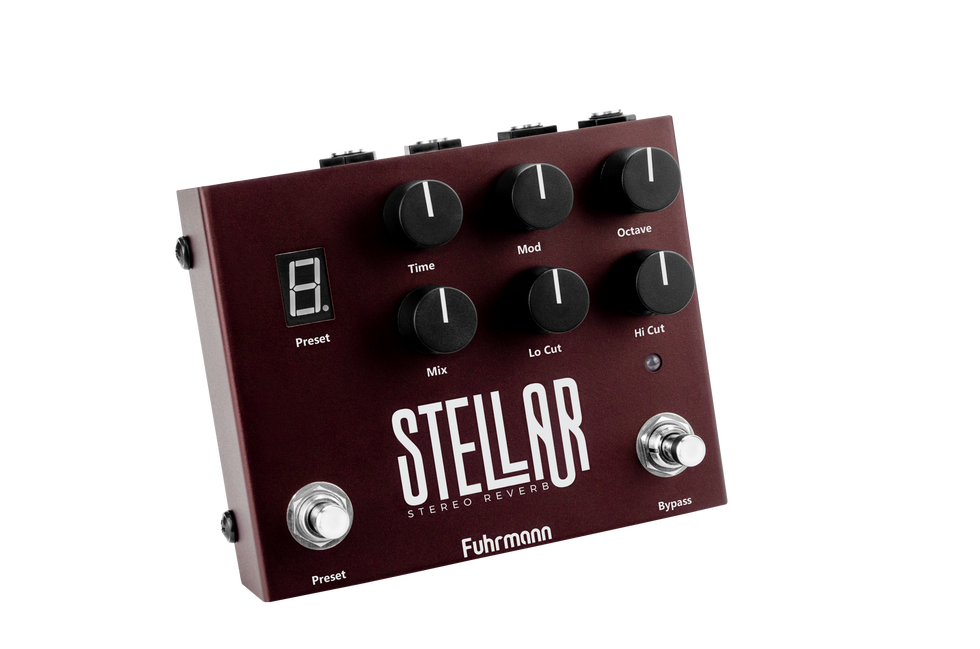
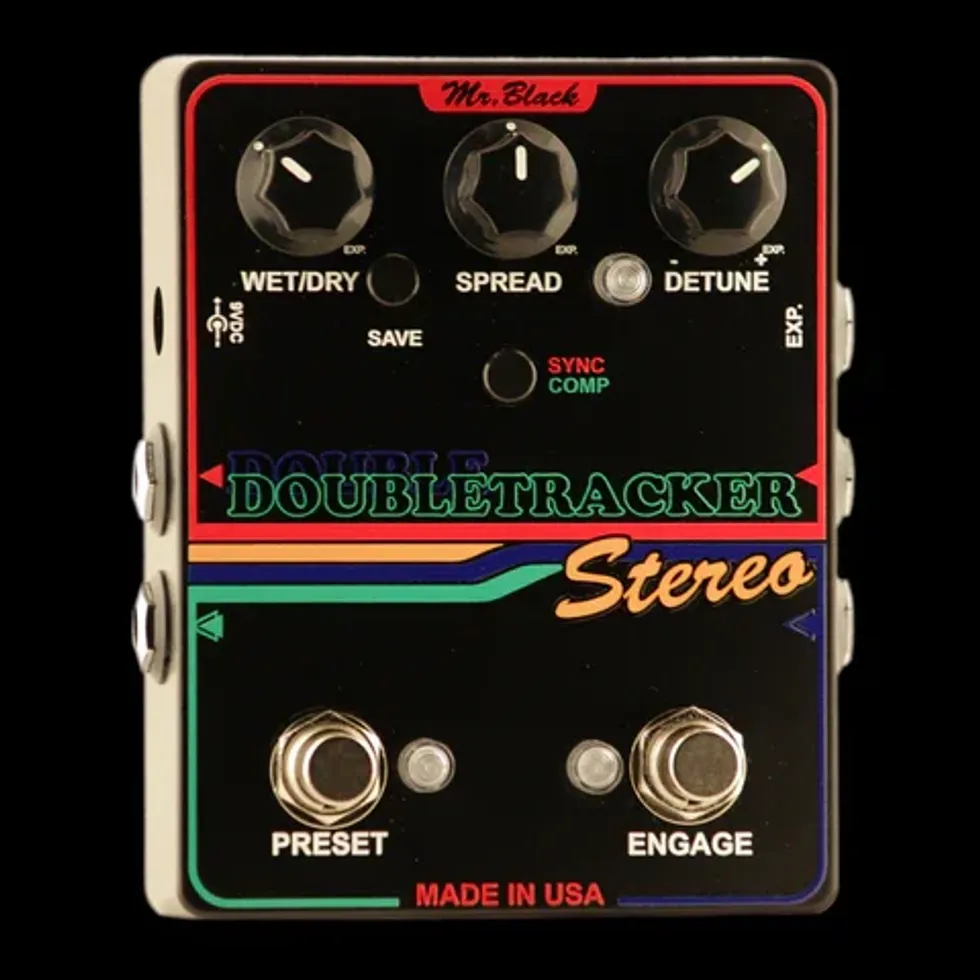
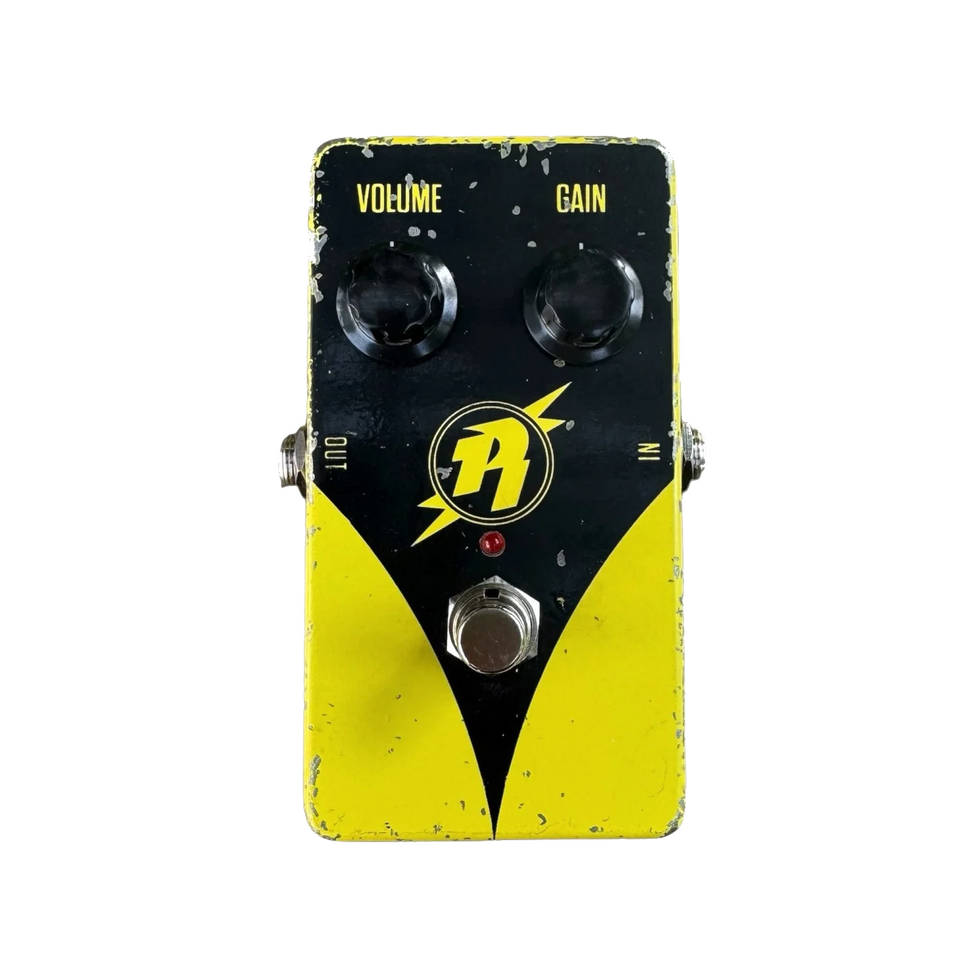

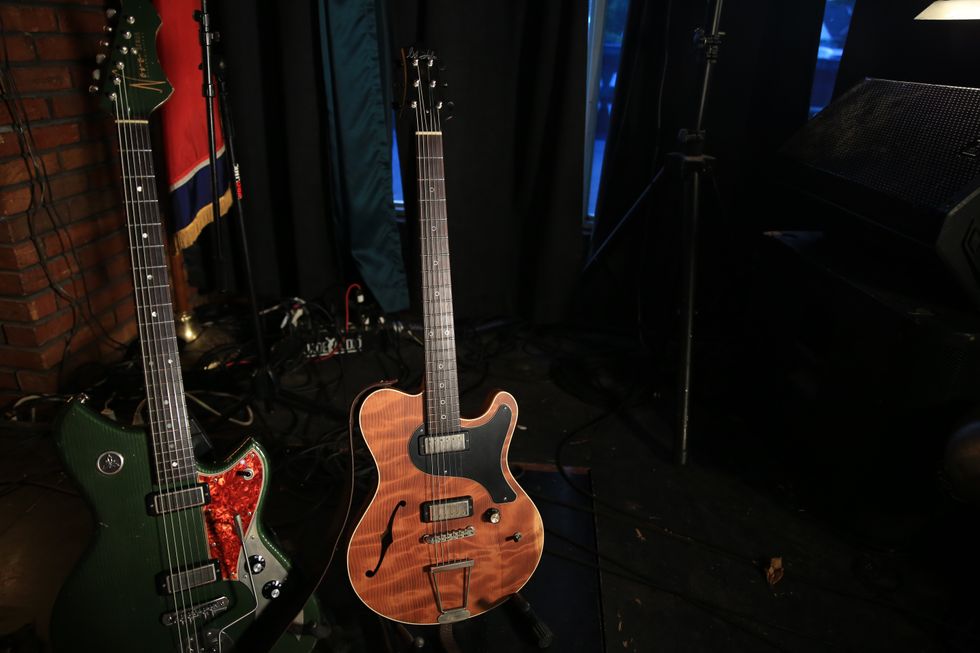
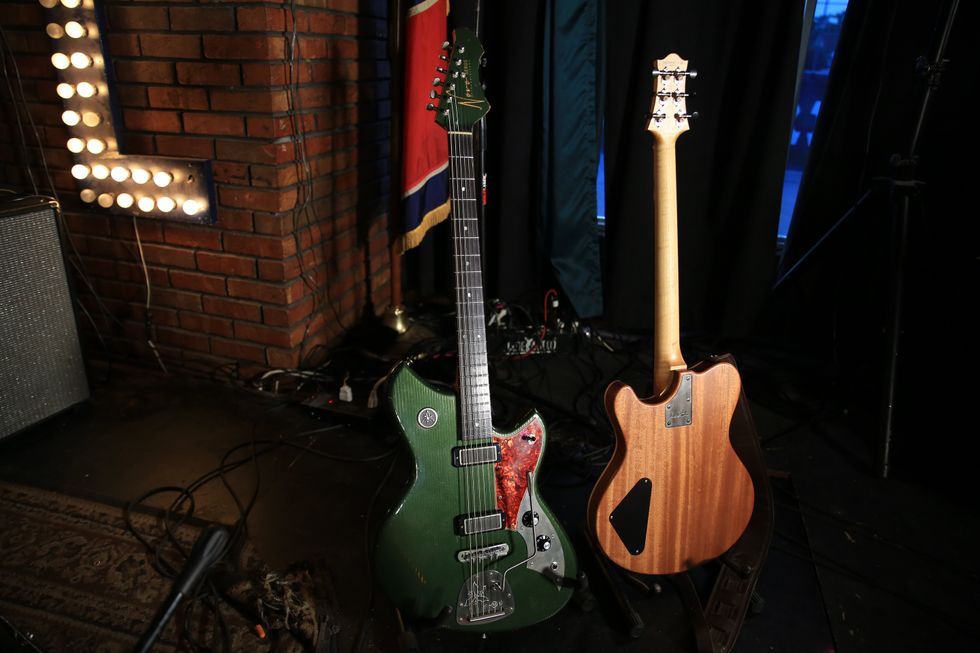
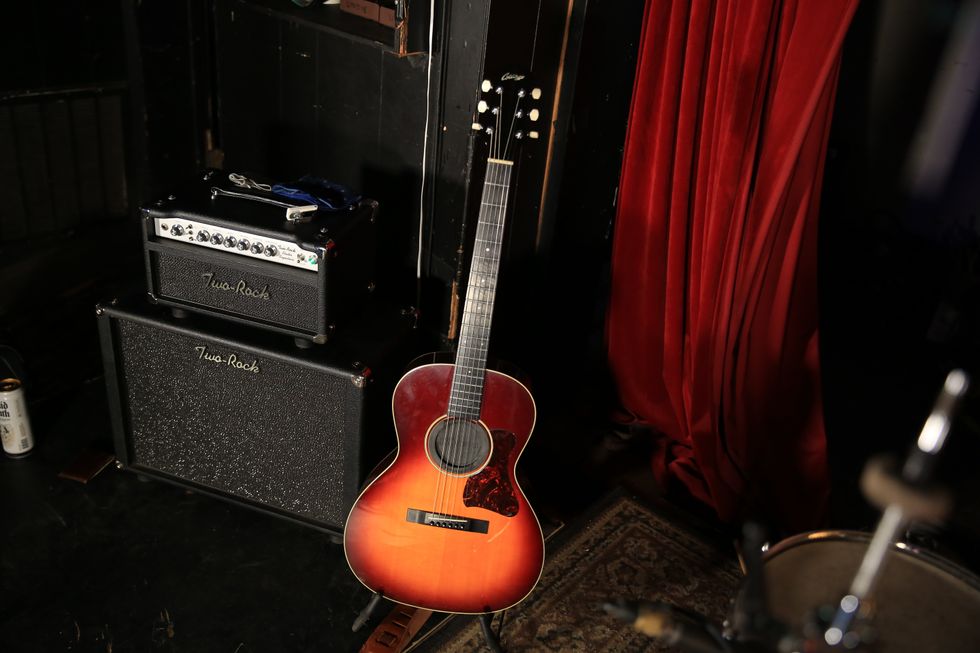
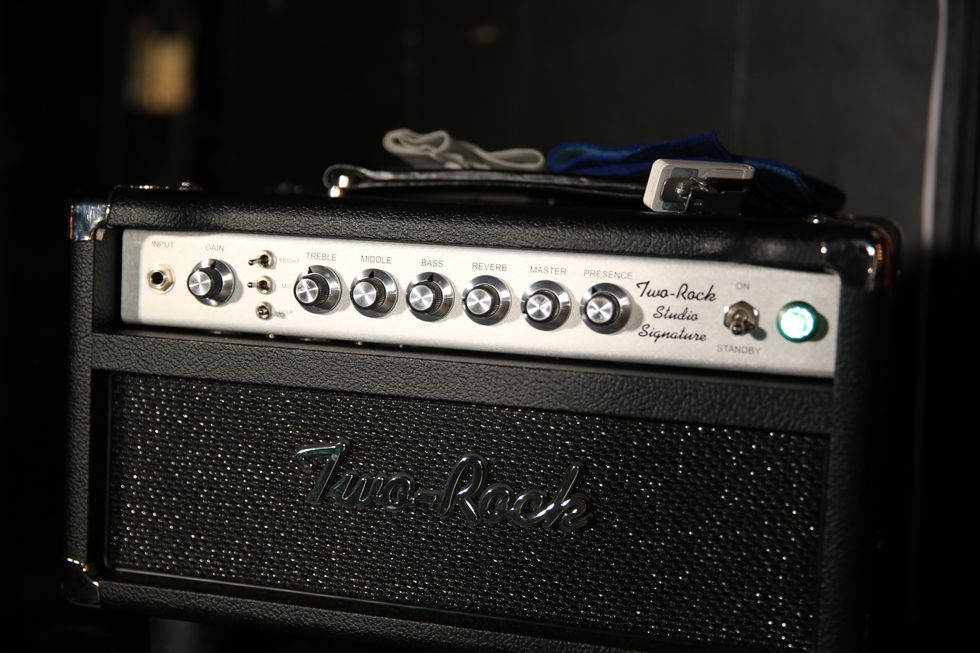
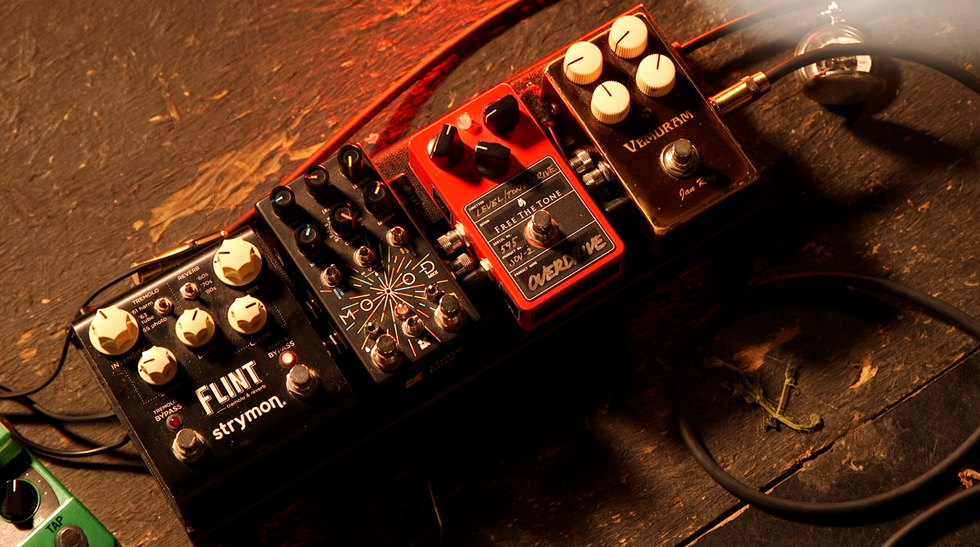
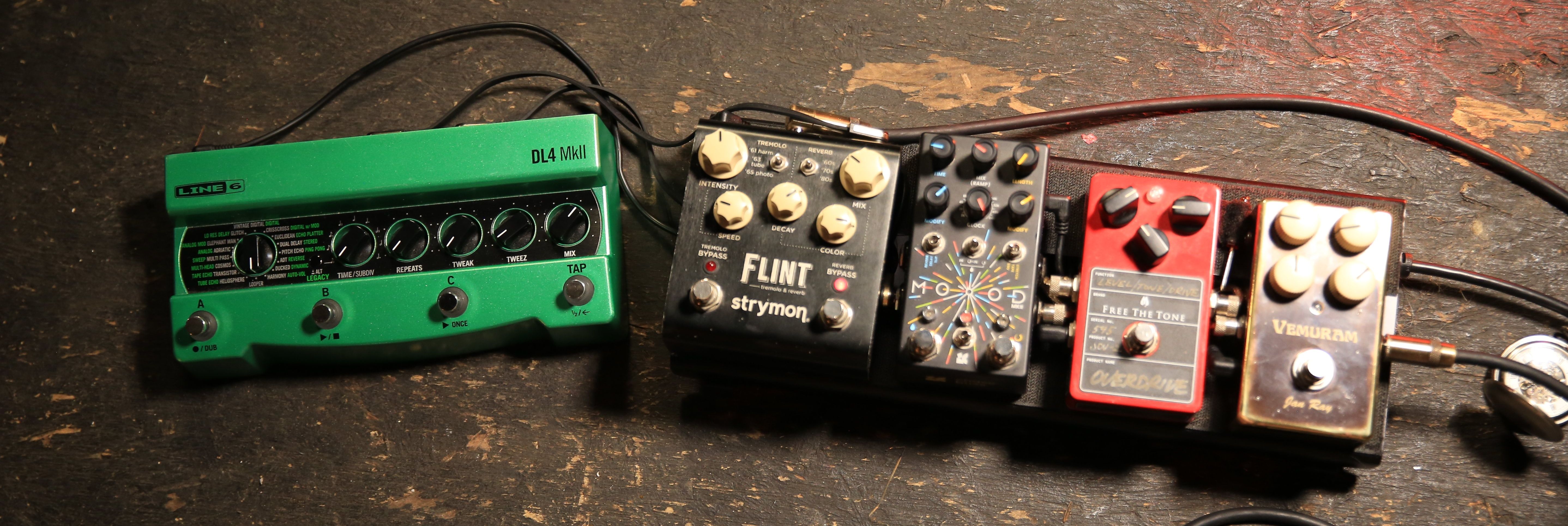 Miller’s Collings runs into a Grace Design ALiX preamp, which helps him fine-tune his EQ and level out pickups with varying output when he switches instruments. For reverb, sometimes he’ll tap the
Miller’s Collings runs into a Grace Design ALiX preamp, which helps him fine-tune his EQ and level out pickups with varying output when he switches instruments. For reverb, sometimes he’ll tap the 